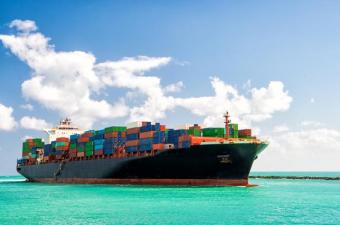
OVERVIEW
In a significant judgment on the law of arrest, the Court of Appeal have upheld the Judgment of the Admiralty Judge Mr Justice Teare [2018] EWHC 2033 (Admlty) on the availability and utility of arrest in relation to obtaining security for subsequent claims.
Mr Justice Teare had confirmed earlier in 2018 that an arrest of a vessel within the Admiralty jurisdiction of the English High Court (in support of specified maritime claims) is not generally subject to the same rules and protections afforded to those faced with freezing injunctions at general law.
The Court of Appeal on 11th December 2018 (Etherton, Gross and Flaux LJJ) upheld Teare J.’s judgment and held that
- Firstly, provided only that the property (generally a ship) is within the scope of an action in rem and there has been procedural compliance with the rules, arrest is as of right. No judicial discretion is involved - and no question arises of requiring a cross-undertaking in damages from the arresting party as the price of issuing the warrant of arrest.
- Secondly, no damages can be claimed for wrongful arrest absent malice (bad faith) or (effectively) gross negligence on the part of the arresting party: Willers v Joyce [2016] UKSC 43 ; [2016] 3 WLR 477.
- Thirdly, once a vessel has been arrested, the settled, usual practice of the Admiralty Court is that the vessel will not be released unless the shipowner provides security for the underlying claim or in cases of abuse of process: the security required must cover the amount of the claim, plus interest and costs, on the basis of the arrestor’s reasonably arguable best case.
However, in an important departure, the Court of Appeal held that although a Judge might have power to depart from the usual practice of not ordering release of a vessel from arrest absent provision of sufficient security, a Court “would [have to] think long and hard before departing from the usual practice”.
The Court of Appeal questioned why the position of a party making a maritime arrest (where a cross-undertaking is not generally required) should continue to diverge from that of a claimant obtaining a freezing order where a cross-undertaking in damages is invariably required and forms part of the standard form of freezing order. This is particularly the case where an arrest may bear more harshly on a shipowner than a freezing order.
This was because
- A freezing order ordinarily has exceptions for ordinary business expenses which is not mirrored in an arrest;
- Under an arrest a shipowner loses the use of a profit-earning asset but will continue to be liable for various expenses relating to the vessel under arrest.
- Although the security required to release a ship from arrest is limited to the amount of the claim, plus interest and costs, on the basis of the claimant’s reasonably arguable best case the ship arrested may well be considerably more valuable than the claim. By contrast a freezing order will be limited by the Court to the estimated amount of the claim, plus interest and costs.
However the Court of Appeal was prepared to preserve the existing law and practice relating to arrest for the following reasons:-
- The availability of arrest provides the unique feature of the claim in rem and it is what makes the action in rem unique or distinctive;
- Of there was a discretion to release from arrest without provision of security requirement of a cross-undertaking to make or continue an arrest would become routine;
- The remedy of arrest or even the threat of arrest, is effective in compelling the provision of some other security;
- A ship arrest is asset specific; it does not “freeze” or paralyse the entirety of the shipowner’s business in the same manner as a freezing order might do.
- The analogy between maritime arrests and interlocutory injunctions, in particular the freezing injunction, is neither exact nor compelling;
- Although an arrest has not been a requirement for establishing Admiralty jurisdiction since 1883 there has been no reconsideration of its availability in England.
- There is no, or no significant, pressure from the maritime industry for a change in the balance struck on arrest.
- The maritime industry via P&I Clubs and hull underwriters routinely give undertakings either to avoid arrest or to secure release from arrest.
The Court of Appeal held that the fact that a one-ship owning company could not of itself put up alternative security to obtain the release of the vessel was not a relevant factor taking the case out of the normal practice of the Admiralty Court.
This is a significant “win” for those with arrestable claims who are likely to obtain jurisdiction and security against a vessel as of right. In most cases where a ship is available to be arrested an arrest should generally be sought in preference to a freezing injunction.

